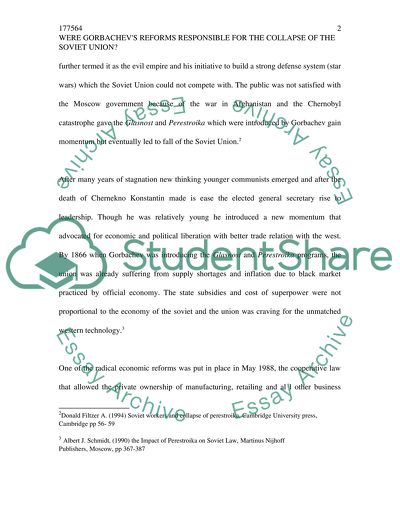Cite this document
(Gorbachev's Reforms in the USSR Collapsing Essay, n.d.)
Gorbachev's Reforms in the USSR Collapsing Essay. https://studentshare.org/politics/1510182-gorbachevs-reforms
Gorbachev's Reforms in the USSR Collapsing Essay. https://studentshare.org/politics/1510182-gorbachevs-reforms
(Gorbachev'S Reforms in the USSR Collapsing Essay)
Gorbachev'S Reforms in the USSR Collapsing Essay. https://studentshare.org/politics/1510182-gorbachevs-reforms.
Gorbachev'S Reforms in the USSR Collapsing Essay. https://studentshare.org/politics/1510182-gorbachevs-reforms.
“Gorbachev'S Reforms in the USSR Collapsing Essay”. https://studentshare.org/politics/1510182-gorbachevs-reforms.


